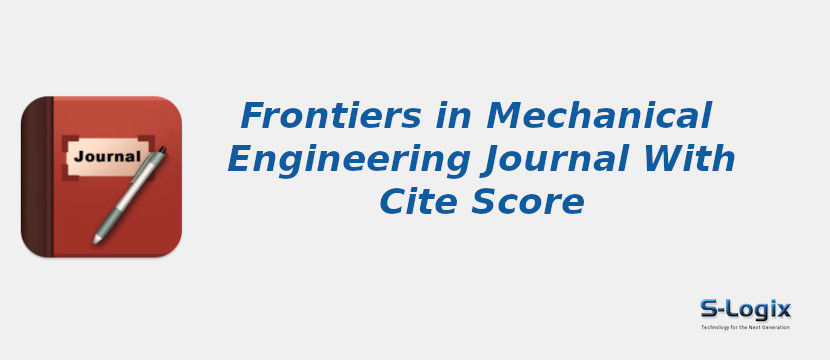Journal Home: Journal Homepage
Editor-in-Chief: Michael M KhonsariÂ
Print ISSN: 22973079
Electronic ISSN:
Abstracting and Indexing: Scopus
Imapct Factor 2024: 3.0
Subject Area and Category: Computer Science, Computer Science Applications, Engineering, Industrial and Manufacturing Engineering, Mechanical Engineering, Materials Science, Materials Science (miscellaneous)
Publication Frequency:
H Index: 33
Q1:
Q2: Mechanical Engineering
Q3:
Q4:
Cite Score: 4.3
SNIP: 0.977
Journal Rank(SJR): 0.514
Latest Articles: Latest Articles in Frontiers in Mechanical Engineering
Guidelines for Authors: Frontiers in Mechanical Engineering Author Guidelines
Paper Submissions: Paper Submissions in Frontiers in Mechanical Engineering
Publisher: Frontiers Media S.A.
Country: Switzerland
